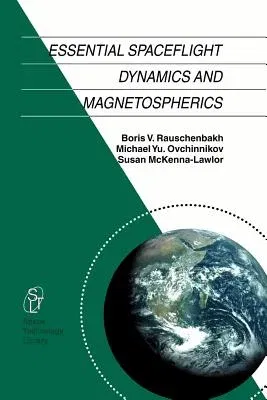V Rauschenbakh
(Author)Essential Spaceflight Dynamics and Magnetospherics (Softcover Reprint of the Original 1st 2003)Paperback - Softcover Reprint of the Original 1st 2003, 8 December 2010

Qty
1
Turbo
Ships in 2 - 3 days
In Stock
Free Delivery
Cash on Delivery
15 Days
Free Returns
Secure Checkout
Part of Series
Space Technology Library
Print Length
397 pages
Language
English
Publisher
Springer
Date Published
8 Dec 2010
ISBN-10
9048161940
ISBN-13
9789048161942
Description
Product Details
Book Edition:
Softcover Reprint of the Original 1st 2003
Book Format:
Paperback
Country of Origin:
NL
Date Published:
8 December 2010
Dimensions:
23.39 x
15.6 x
2.16 cm
ISBN-10:
9048161940
ISBN-13:
9789048161942
Language:
English
Location:
Dordrecht
Pages:
397
Publisher:
Series:
Weight:
580.6 gm

